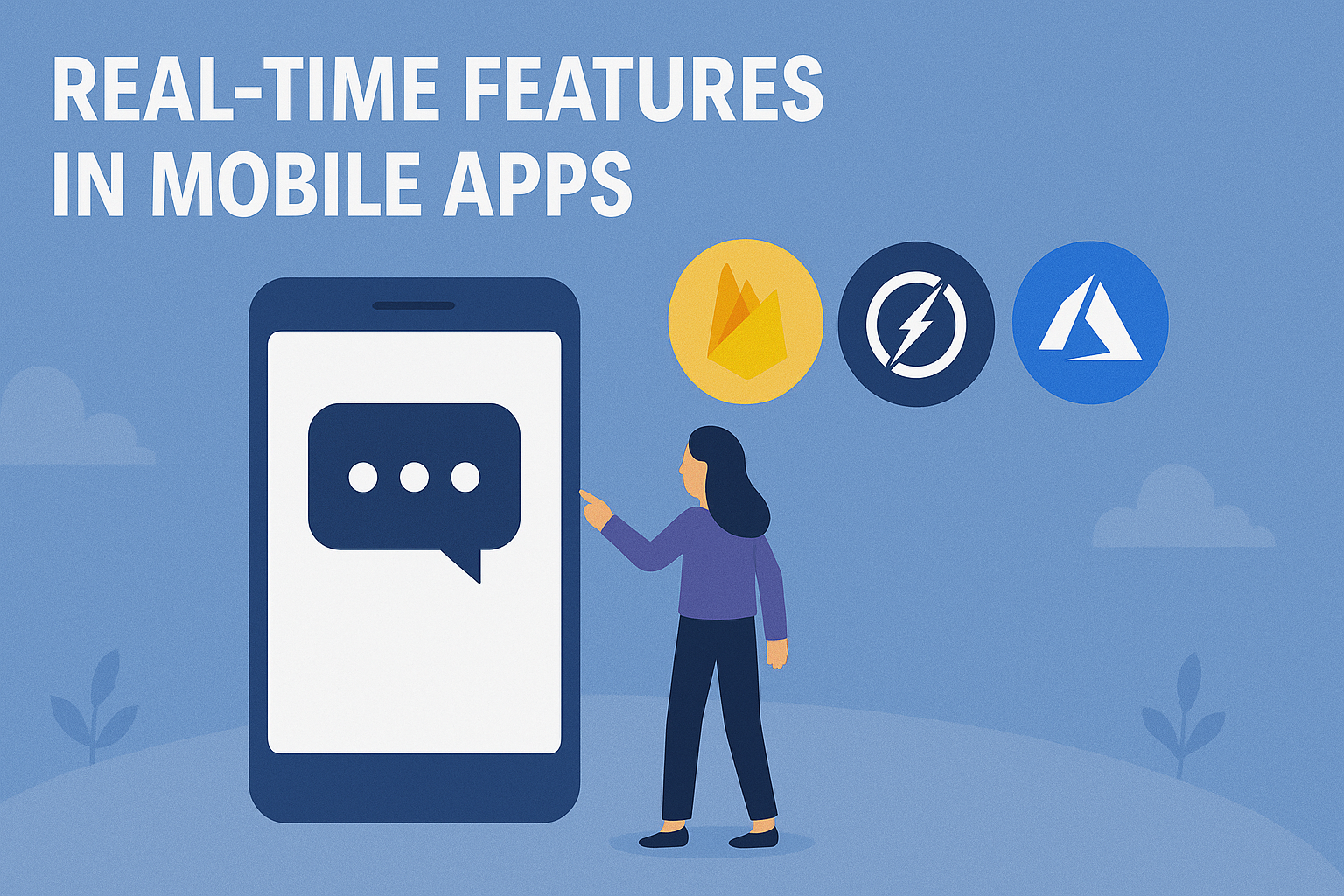Delivering real-time experiences in mobile applications is now essential—from live chat and multiplayer games to collaborative tools and instant notifications. This guide explores three powerful technologies for building real-time features: Firebase, Socket.io, and Azure SignalR. We’ll break down how each works, when to use them, and include sample code to help you hit the ground running.
Firebase Realtime Database & Firestore
Firebase by Google offers two key services for real-time apps: Realtime Database and Cloud Firestore. Both allow real-time data synchronization across clients.
When to Use Firebase:
- Mobile apps with user-generated content (e.g., messaging)
- Cross-platform support (Android, iOS, Web)
- Need fast MVP development with minimal backend
Example: Chat App in React Native with Firestore
import firestore from ‘@react-native-firebase/firestore’;
useEffect(() => {
const unsubscribe = firestore()
.collection('messages')
.orderBy('timestamp', 'desc')
.onSnapshot(snapshot => {
const messages = snapshot.docs.map(doc => ({ id: doc.id, ...doc.data() }));
setMessages(messages);
});
return () => unsubscribe();
}, []);Socket.io for Custom Real-Time Logic
Socket.io enables bidirectional communication between client and server using WebSockets. Perfect for custom real-time features like multiplayer games or real-time dashboards.
When to Use Socket.io:
- You control both client and server
- Need low-latency interaction (e.g., games, live metrics)
- Custom protocols or authentication
Example: Node.js Server Broadcasting Updates
const io = require('socket.io')(3000, {
cors: { origin: '*' }
});
io.on('connection', (socket) => {
console.log('User connected:', socket.id);
socket.on('message', (data) => {
socket.broadcast.emit('message', data);
});
});Azure SignalR for Enterprise Real-Time Apps
Azure SignalR Service is a managed service for adding real-time web functionality using ASP.NET or Azure Functions.
When to Use Azure SignalR:
- Enterprise-grade web/mobile apps with .NET backend
- Scalable real-time messaging across distributed systems
- Integration with Azure Functions or App Services
Example: Azure Function with SignalR Binding (C#)
[FunctionName("SendMessage")]
public static async Task<IActionResult> Run(
[HttpTrigger(AuthorizationLevel.Function, "post")] HttpRequest req,
[SignalR(HubName = "chat")] IAsyncCollector<SignalRMessage> signalRMessages)
{
string user = req.Query["user"];
string message = await new StreamReader(req.Body).ReadToEndAsync();
await signalRMessages.AddAsync(
new SignalRMessage
{
Target = "newMessage",
Arguments = new[] { user, message }
});
return new OkResult();
}Choosing the Right Tool
| Use Case | Recommended Tool |
| Simple real-time chat | Firebase |
| Real-time multiplayer game | Socket.io |
| Scalable enterprise dashboard | Azure SignalR |
Bonus Tip:
You can combine tools! Use Firebase for chat and Socket.io for game logic in the same app if needed.
Final Thoughts
Choosing the right real-time tech depends on your app’s architecture, use case, and scalability needs. Firebase is best for fast iterations, Socket.io shines in custom workflows, and Azure SignalR offers rock-solid enterprise capabilities.
Want a step-by-step setup guide or integration template? Just let me know!


